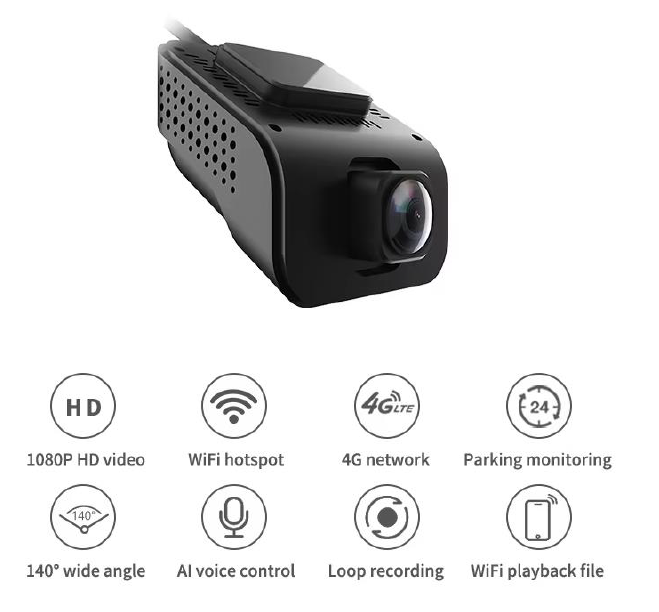Fleet camera systems have become a vital tool for UK businesses operating commercial vehicles. They help improve driver safety, reduce insurance claims, and provide critical evidence in the event of an incident. But alongside these benefits comes a serious responsibility: ensuring compliance with UK privacy laws.
Using dash cams or in-cab surveillance involves collecting personal data, including video footage of employees, other road users, and even pedestrians. That means your fleet camera system must comply with the UK General Data Protection Regulation (UK GDPR) and the Data Protection Act 2018 (DPA 2018).
Here’s a practical guide to staying compliant while getting the most out of your fleet camera investment.
1. Know the Legal Framework
If your fleet cameras capture identifiable individuals such as drivers, passengers, or pedestrians, you're processing personal data. This brings your use of cameras under the scope of:
- UK GDPR
- Data Protection Act 2018
- Human Rights Act 1998 (Article 8: Right to privacy)
- Employment Practices Code (from the Information Commissioner’s Office - ICO)
Under these laws, you must have a lawful basis for collecting and using video footage. The most common justifications for fleet operations are:
- Legitimate interests (e.g. protecting assets, ensuring driver safety)
- Legal obligation (e.g. regulatory compliance or insurance requirements)
Action Tip: Document your lawful basis for using cameras in a Data Protection Impact Assessment (DPIA).
2. Be Transparent with Your Drivers
Transparency is not optional; it’s a legal requirement.
Your drivers must be fully informed about:
- What is being recorded (e.g. forward-facing dash cam, rear-view, in-cab video, audio)
- Why the recording is necessary
- How the data will be stored, used, and who will have access
- How long the footage will be retained
Action Tip: Create a written camera policy and ensure all employees sign to acknowledge they’ve received and understood it.
3. Use In-Cab Cameras Responsibly
Interior-facing cameras (especially those using AI to monitor fatigue or distraction) raise additional privacy concerns.
Best practices in the UK include:
- Only recording while the vehicle is in use for business purposes
- Avoiding continuous monitoring unless strictly necessary
- Clearly justifying in-cab recording in your DPIA
- Giving drivers the ability to cover or disable in-cab cameras when off-duty (if the vehicle is used privately)
Action Tip: Only implement in-cab video if there’s a clear safety or legal justification.
4. Signage and Notification Are Essential
You must clearly inform anyone who might be recorded, including members of the public, that CCTV or recording equipment is in use.
- Use prominent stickers or signs in and around vehicles
- Include contact details for your data protection officer (or responsible person)
- Reference your full privacy notice, available online or via request
Action Tip: Your signage should say something like:
“CCTV in operation for safety and monitoring purposes. For more information, contact [your company details].”
5. Secure and Limit Access to Footage
Under UK GDPR, you are responsible for keeping personal data secure and protected against unauthorised access.
- Store footage in encrypted, access-controlled systems
- Limit access to only trained, authorised staff
- Set clear retention periods (e.g. delete unflagged footage after 30 or 60 days)
- Use UK-based or GDPR-compliant cloud services
Action Tip: Maintain an audit trail of who accessed footage and why.
6. Respect Data Subject Rights
Anyone recorded by your cameras, including employees or third parties, has the right to:
- Request access to footage (Subject Access Request)
- Request correction or deletion of inaccurate data
- Object to processing in some cases
- You must be able to locate and provide relevant footage within one month of receiving a valid request.
Action Tip: Have a process in place to respond to Subject Access Requests efficiently.

Fleet cameras can be an incredibly powerful tool, but only if used responsibly. In the UK, privacy laws require transparency, proportionality, and proper data handling. By conducting a DPIA, communicating clearly with staff, securing your data, and respecting individual rights, you’ll protect both your business and your drivers.
Need Help Staying Compliant?
If you're unsure whether your fleet camera setup meets UK legal requirements, contact us at AIDA Systems to review your systems or provide a quote for a new system on 01302 989126 or e-mail [email protected]